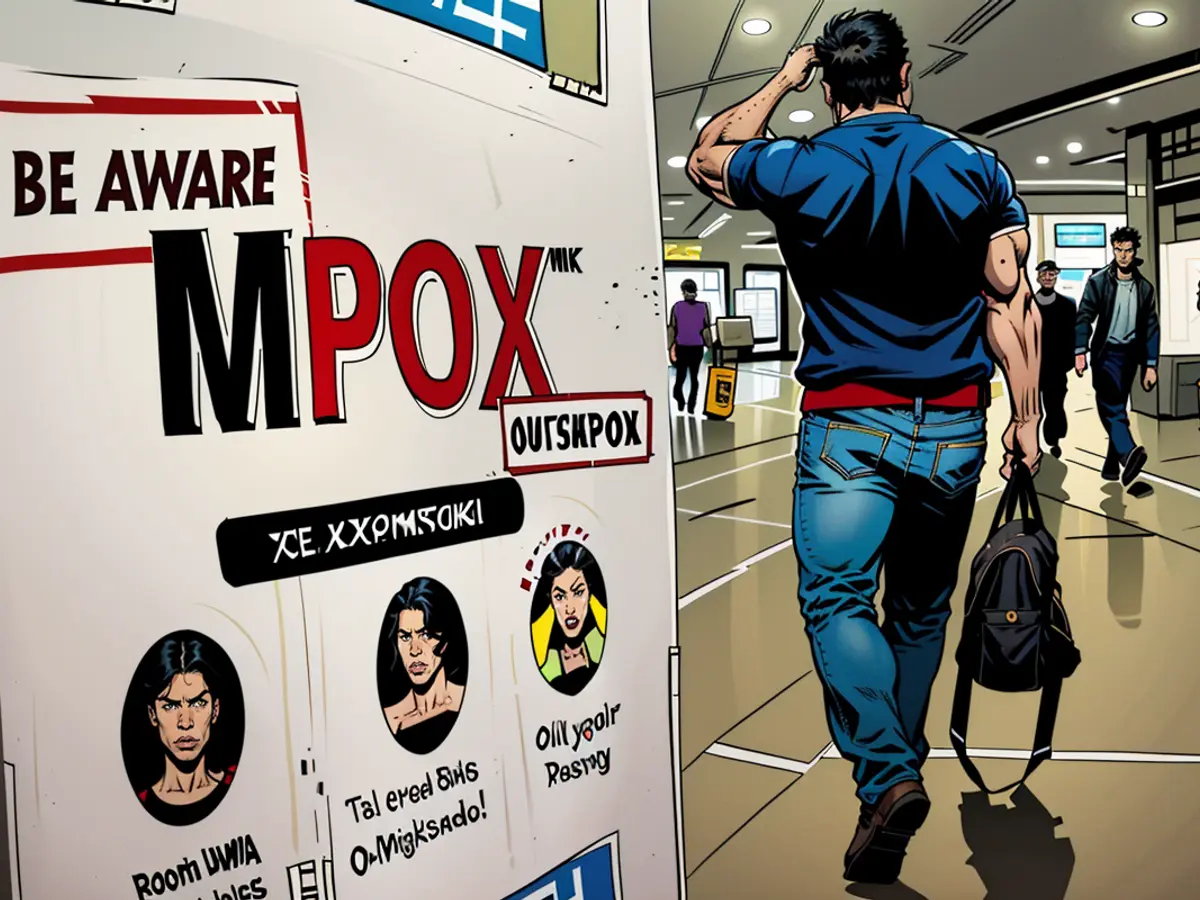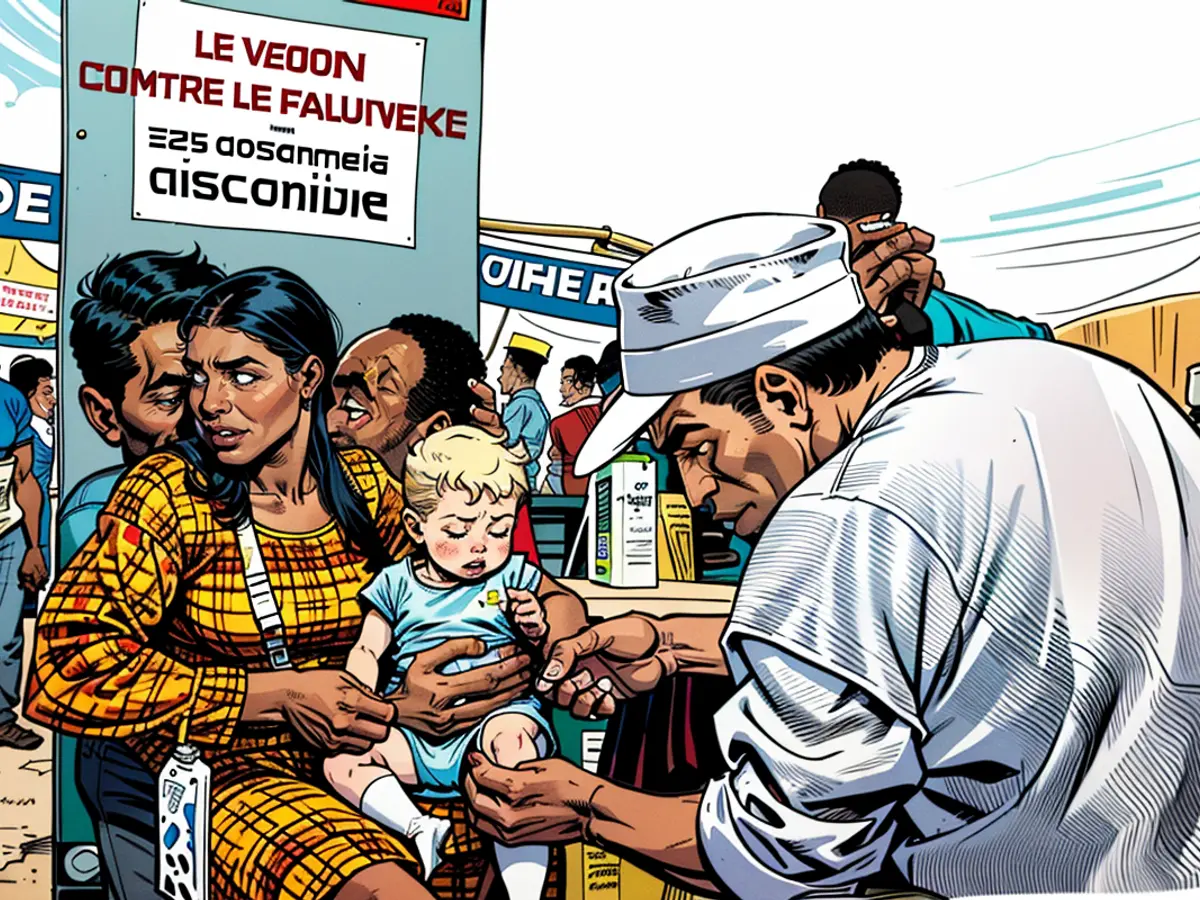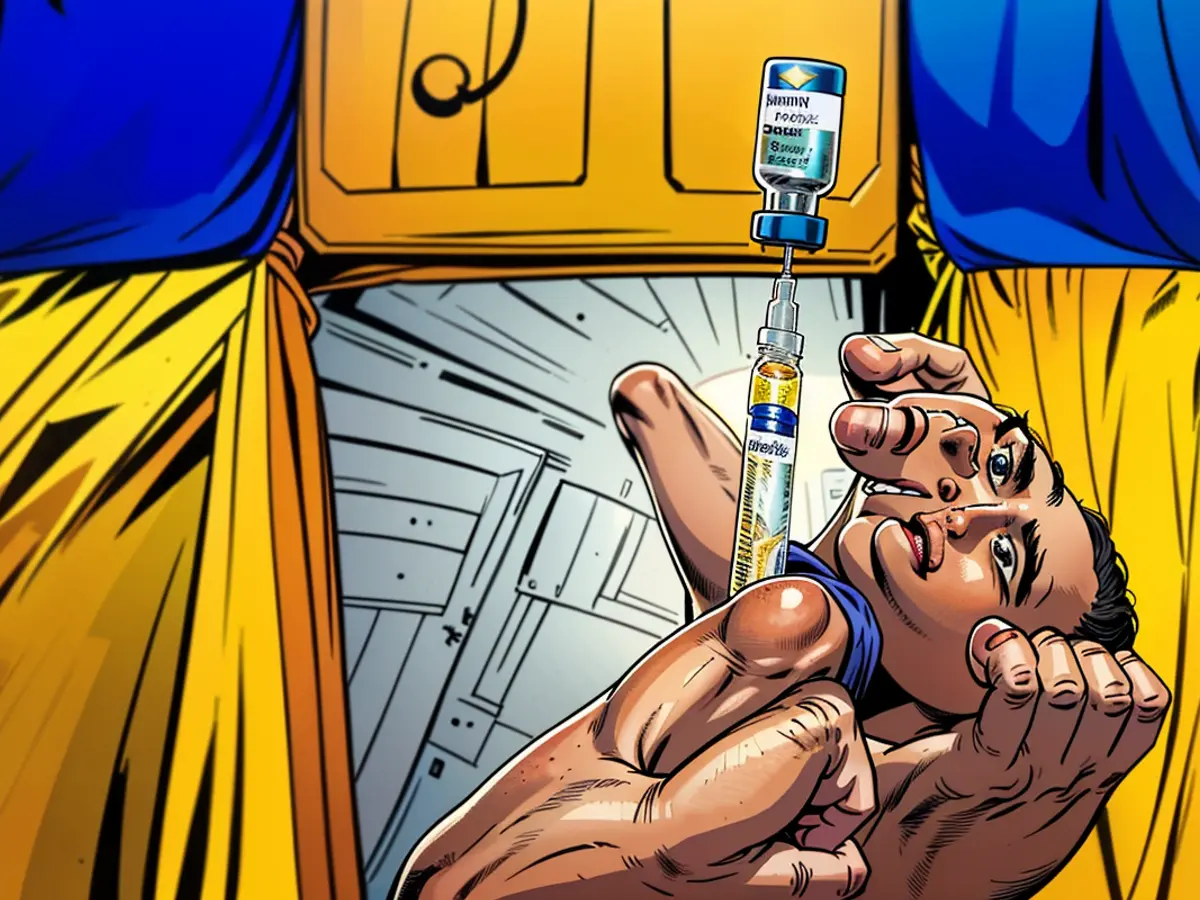Essential Vaccinations to Familiarize Yourself Prior to Journeying
While a casual illness like a mild stomach bug is common among travelers, there are far more serious diseases, even deadly ones, that adventurers ought to safeguard themselves against.
Global alarm is escalating over the dissemination of mpox, a viral affliction formerly referred to as monkeypox, which originally claimed the lives of 1 in 10 individuals infected, but now takes 3.3% of victims.
Sweden marked the first case outside the African continent in August, of the new, more virulent mpox strain, clade Ib, which has since spread to Asia as well, with confirmed instances in Thailand and suspected cases in Pakistan and the Philippines.
International concern
The World Health Organization (WHO) has declared the prevalent mpox outbreak in more than a dozen central African nations as a “public health emergency of international concern,” the highest level of warning under international health regulations.
The US Centers for Disease Control and Prevention (CDC) advises vaccination with two doses of the Jynneos mpox vaccine for individuals in the US with a substantial risk of contracting the virus.
In terms of bite protection, tourists are encouraged to employ insect repellent and wear permethrin-treated long-sleeved shirts and long pants when outside – similar recommendations for other mosquito-borne diseases like malaria or dengue fever.
Both dengue and malaria have garnered attention lately, but for different reasons.
Previously, there was no widely available dengue vaccine for travelers. However, in the recent past, Qdenga has been introduced in the UK, the European Union, and certain non-European countries, while Dengvaxia is available in the United States.
Nevertheless, Dr. Nicky Longley, a consultant in infectious diseases and travel medicine at The Hospital for Tropical Diseases (HTD) at University College London Hospitals, believes that the Qdenga vaccine is not the anticipated cure-all for travelers.
“The Qdenga vaccine reduces the chance of severe illness and death if you catch dengue a second time, but if you haven’t had dengue before, it offers minimal protection, and there is a theoretical risk that it could increase your risk of a severe infection,” she says. Longley encourages people who have not been infected by the virus to postpone the vaccine while trials are still ongoing and instead adhere to the outlined measures against mosquito bites – advice that applies to individuals irrespective of their vaccination status.
A traveler who appreciates the introduction of the new Qdenga vaccine is Chris Dwyer, a UK-based travel writer. He contracted dengue while on vacation in Malaysia in 2014 and experienced symptoms such as joint pain, weak limbs, a high fever, and an escalating temperature. He was hospitalized, required fluids through an IV, and had his liver and white blood cell count monitored. He ultimately recovered, but the experience was harrowing. Dwyer acknowledges that, having been infected with dengue before, he would be at even greater risk if he were to catch it again. “I am seriously considering getting jabbed with Qdenga now, as I frequently visit Asia and know how dangerous it would be to get sick again,” Dwyer said.
Meanwhile, optimistic headlines about potential malaria eradication within a decade have been generating enthusiasm after the creation of an affordable vaccine against the devastating disease that annually claims around 600,000 lives, the majority being African children under the age of 5.

Malaria is a condition that spreads from the female anopheline mosquito biting an individual with malaria and then biting another.
Risk of infection
Fourteen months ago, infants in South Sudan and the Ivory Coast were administered the first doses of the vaccine, with additional African countries said to be authorizing it.
It is positive news for Africa, the world’s second-most populous continent, but the likelihood of a malaria vaccine for global travelers within a similar timespan is virtually nonexistent, according to Longley.
“It’s simply not a suitable vaccine for travelers, as it requires frequent boosters and ongoing exposure, and it does not offer complete protection,” she explains. Instead, it reduces the risk of death in children, and when an entire population is vaccinated against malaria, the disease will eventually be eradicated.
However, we are still a long way from a malaria-free world, and anyone traveling to affected regions (it can occur in the US, although instances are relatively rare) should be aware of how to do so safely and responsibly.
Just as cautious is Anniina Sandberg, the Finnish creator of boutique travel agency Visit Natives, who has explored remote regions of Africa for more than two decades.
As a seasoned traveler, she knows which antimalarial medication is most effective for her and always carries mosquito nets while traveling to the African savanna, not just for her protection but also as a lifesaving gift for local communities. However, Sandberg herself once came close to death after falling ill on a trip many years ago and wishes to share her experience as a cautionary tale.
Before embarking on a year-long field trip among the Maasai in Tanzania when she was still a student, Sandberg was prescribed a combination of an antimalarial drug and antibiotics. However, after a few months, the daily medication “started to seem unnecessary.”
“I noticed that the local population would regularly get malaria and recover from it, so I foolishly began to think of it as just a common cold,” she says.
“Of course, it’s a lot more dangerous than that, and as soon as I stopped taking the tablets, I fell gravely ill, with a high fever, muscle aches, and exhaustion.”
Despite visiting a hospital and receiving malaria medication, Sandberg's situation worsened dramatically with an intense bout of stomach flu. Upon her return to the hospital, medical professionals discovered that she wasn't only dealing with malaria but also typhoid fever, a bacterial disease prevalent in areas with poor sanitation and limited access to clean water.

Typhoid vaccines are widely accessible, with boosters suggested every few years.
Sandberg's harrowing experience did not deter her from courageous journeys.
"You can be incredibly cautious, but you'll never entirely eliminate every health risk while traveling, no matter the destination," remarks Sandberg, who had a scare involving rabies a few years ago.
During her visit to the Tanzanian Datoga community, whose traditional way of life revolved around rearing sheep on the savanna, Sandberg noticed an unwell animal in the herd.
"I couldn't determine for certain if it had rabies or something else, but it was clearly very sick, and I took measures to avoid it," she recalls.
Taking Preventative Measures
However, a few days later, Sandberg had a realization that the sick sheep was just a few feet away from her, licking the blister on her injured foot.
"I became quite nervous," she admits. "I understood that I needed to seek medical attention immediately."
Given her remote location, Sandberg had to wait until her return to Helsinki, Finland, a few days later, to receive a series of post-exposure rabies shots.
This treatment is crucial in situations where there is a chance of infection, even for those who have been vaccinated against rabies; the initial vaccination provides additional time.
"We usually recommend starting treatment within a week, but obviously, the sooner the better," suggests HTD's Longley.
The duration until rabies manifests itself depends on the position of the infected wound. It could take weeks or even months for the virus to reach the nervous system and the brain. Once it does, recovery is impossible.

Delayed rabies treatment has resulted in patients deciding to seek treatment locally instead of flying back home, only to discover later that they were given an ineffective vaccine.
In unfamiliar surroundings, Longley cautions, "you can't necessarily be certain if the vaccine you're receiving is genuine or properly stored."
Rabies vaccination is "essential," according to Longley, "because rabies is quite widespread."
Despite popular belief, the virus isn't primarily a threat in Asia. It's present in over 150 countries across all continents, including Antarctica, other than that one.
"There are even parts of Europe and the Americas where it poses a significant risk," says Longley.
Tick-borne encephalitis (TBE), a human viral disease that can affect the central nervous system, is another risk people often underestimate.
"There are areas of central Europe that we definitely recommend vaccinating against, especially if you're planning on hiking or camping," says Longley.
"TBE isn't rabies at all, but like rabies, if you have TBE, there isn't a specific treatment for it, and although the vast majority of people recover, a small number become severely ill and may experience disability, with some fatalities."
The cost of vaccines, including those for TBE, can vary significantly between clinics.
It's worth researching for affordable vaccines, says Longley, but the quality of the health advice you acquire before your journey is far more important.
"The advice is actually more important than the vaccine you might think you need," concludes Longley.
Childhood vaccination is an incredibly effective public health approach to controlling and preventing diseases.

In the United States, several vaccines are recommended for children between birth and 10 years, such as hepatitis A, measles, Covid-19, mumps, and rubella. More, like tetanus and diphtheria, are suggested for adolescents. The CDC provides a comprehensive list, but it's also crucial to consult your doctor.
Adults should maintain a record of their vaccinations and when they require boosters. When planning a trip, it is recommended to check the CDC's destination pages for travel health information to ensure you have all the necessary and required vaccines for your destination and understand how to protect yourself from disease risks.
The World Health Organization (WHO) has also expressed concern over the increasing cases of travel-related monkeypox infections outside Africa, urging travelers to stay informed andtake necessary precautions.
In light of the ongoing global spread of monkeypox, the Centers for Disease Control and Prevention (CDC) recommends that eligible individuals receive the Jynneos mpox vaccine to help build immunity and reduce the risk of infection during travel.
Read also:
- Fear of escalation in the Middle East: US Secretary of State Blinken travels to the region again
- Government circles: US Secretary of State Blinken to travel to Middle East again
- Bridging days 2024: How you can double your vacation this year
- Germany has wanderlust: how tour operators and airlines are looking ahead to the next travel year








